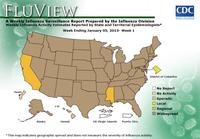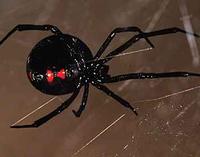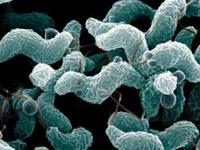-
CDC: Severe flu strain spreading across U.S.

According to the Center for Disease Control(CDC), thirty states are reporting high levels of flu-like illnesses. The flu going around this year is called HN32, and this strain is likely to keep people ill for longer periods than other strains.
-
-
Designer bacteria show way for better vaccines
Researchers have developed a menu of sixty-one new strains of genetically engineered bacteria that may improve the efficacy of vaccines for diseases such as flu, pertussis, cholera, and HPV. The strains are part of a new class of biological “adjuvants” that is poised to transform vaccine design. Adjuvants are substances added to vaccines to boost the human immune response.
-
-
Personal genetic information vulnerable to hacking
Using only a computer, an Internet connection, and publicly accessible online resources, a team of researchers has been able to identify nearly fifty individuals who had submitted personal genetic material as participants in genomic studies.
-
-
Flu virus can tell time
The flu knows how much time it has to multiply, infect other cells, and spread to another human being before the immune system kills it. The discovery of the flu virus’s timing mechanism gives scientists the ability to reset the virus’s clock and combat it in more effective ways.
-
-
Tires shipped from Arizona to a U.K. contained black widow spiders

Two shipments of tires from an Arizona company to a U.K.-based client contained dozens of deadly Black Widow spiders; it appears that the spiders nested in the tires in Arizona, and hatched a brood of young spiders while the shipment was on its 5,000-mile journey to England.
-
-
Better screening for bacteria for safer food

There are around 5.4 million cases of food-borne gastroenteritis in Australia every year. Of these cases, it is estimated that around 200,000 are associated with the bacteria Campylobacter jejuni and Campylobacter coli. Chicken meat and other foods will be able to be screened for bacteria even faster and more effectively than ever, thanks to breakthrough nanobiotechnology research.
-
-
Global warming threatens U.K. diet
The number of days with temperatures over 32 degrees C has more than doubled in some parts of France over the last fifty years. Many other land areas show similar increases. By the 2020s, temperatures over 32 degrees C could occur over large areas of France where previously they were uncommon. Maize yields are reduced significantly for each day with temperatures over around 32 degrees Celsius. The United Kingdom imports more maize from France than anywhere else in the world, and declining crop yields in France mean that U.K. consumers will have to pay more for maize-based foods, or change their diets.
-
-
Drought, heat turn hundreds of U.S. counties into disaster areas

The U.S. Agriculture Department (USDA) last week said that drought conditions and heat necessitated designating 597 counties in fourteen states as primary natural disaster areas. The affected counties have suffered severe drought for eight consecutive weeks, which qualified them for the automatic designation. 2012 had been the hottest year on record for the continental United States: the year’s average temperature of 55.3 degrees Fahrenheit across the Lower 48, which was more than 3.2 degrees warmer than the average for the twentieth century.
-
-
Neutralizing the effects of lethal chemical agents
Organophosphorus agents (OPs) are used both in farm pesticides, and by terrorists and rogue states. About 200,000 people die each year across the world from organophosphorus agents (OP) poisoning, through occupational exposure, unintentional use, and misuse, mostly in developing countries like India, Pakistan, and Sri Lanka and through deliberate terrorist activities. OPs include compounds like Tabun, which was developed in 1936 by German scientists during the Second World War, Sarin, Soman, Cyclosarin, VX, and VR. Researchers develop an enzyme treatment which could neutralize the effects of OPs.
-
-
Conquering cholera in Haiti without vaccinating most people

The Centers for Disease Control and Prevention has been skeptical about the effectiveness of vaccination against cholera in Haiti; it has instead emphasized cleaning up the water supply and improving sanitation as the best ways to check the spread of the disease; a new study suggests that vaccination would be effective, and that cholera could be contained in Haiti by vaccinating less than half the population
-
-
Fish zapping: shocking Asian carp out of Midwest waters not feasible
The several species known as Asian carp are not native to U.S. waterways but have been found in rivers throughout the Midwest; these fish are competing with native species for food and altering ecosystems; they are also dangerous to boaters and other river users since Asian carp can weigh up to sixty pounds and are known to jump out of the water during even minor disturbances; scientists had hoped to modify or expand low-voltage electrical barriers like those used around Chicago waterways to direct Asian carp from particular areas, but found that the level of electricity needed would be far too high
-
-
Helicopter monitors radiation levels in Washington, D.C.

For the last week, a National Nuclear Security Administration (NNSA) helicopter has been flying over Washington, D.C., measuring naturally occurring radiation levels; the purpose is to establish a baseline of radiation levels so that abnormal spikes – occurring, for example, as a result of exploding a dirty bomb — may be readily detected
-
-
New way to design vaccines: modifying antibodies to trigger immune response
In an approach with the potential to aid therapeutic vaccine development, scientists have shown that enzymatically modified antibodies can be used to generate highly targeted, potent responses from cells of the immune system
-
-
FDA issues new food safety rules to fight contamination
One in six Americans becomes ill from eating contaminated food each year; most of them recover without harm, but bout 130,000 are hospitalized and 3,000 die; the FDA estimates the new food safety rules could prevent about 1.75 million illnesses each year
-
-
New strategy for bacteria antibiotic resistance
Scientists used microfluidics to observe the behavior of individual tuberculosis-like bacteria in the presence of antibiotics; their observations call into question the prevailing theory of bacterial resistance, and they have proposed a new explanation for why some bacteria become resistant
-
More headlines
The long view
We Ran the C.D.C.: Kennedy Is Endangering Every American’s Health
Nine former leaders of the Centers for Disease Control and Prevention (CDC), who served as directors or acting directors under Republican and Democratic administrations, serving under presidents from Jimmy Carter to Donald Trrump, argue that HHS Secretary Roert F. Kennedy Jr. poses a clear and present danger to the health of Americans. He has placed anti-vaxxers and conspiracy theorists at top HHS positions, and he appears to be guided by a hostility to science and a belief in bizarre, unscientific approaches to public health.
